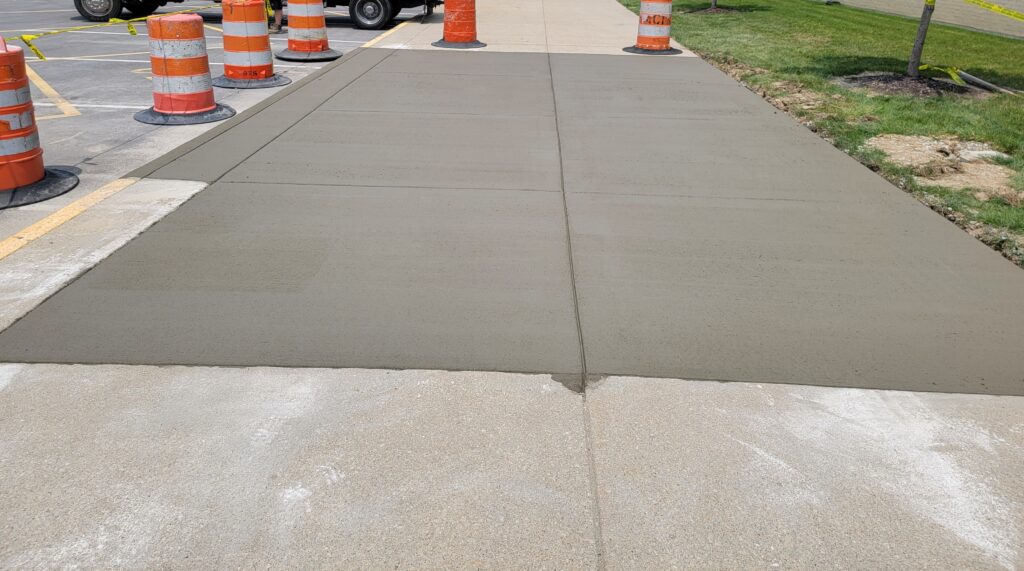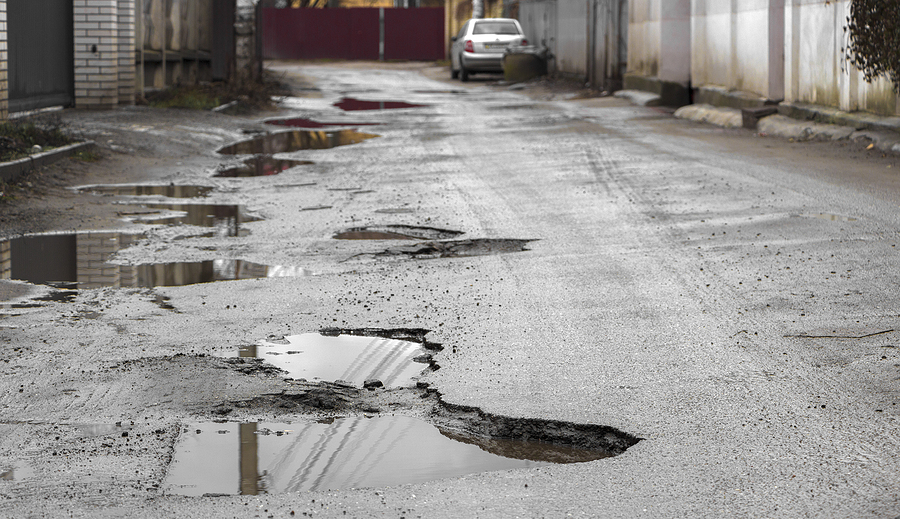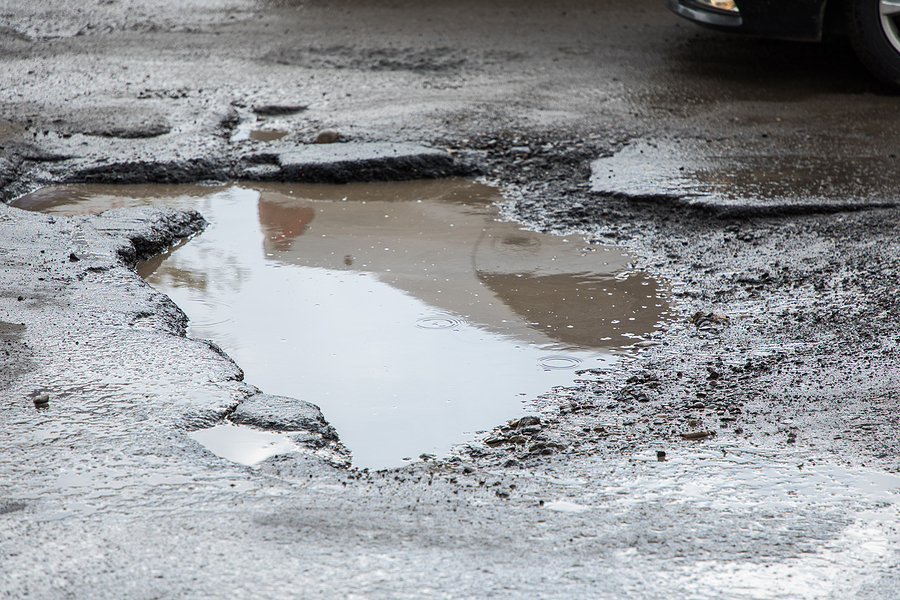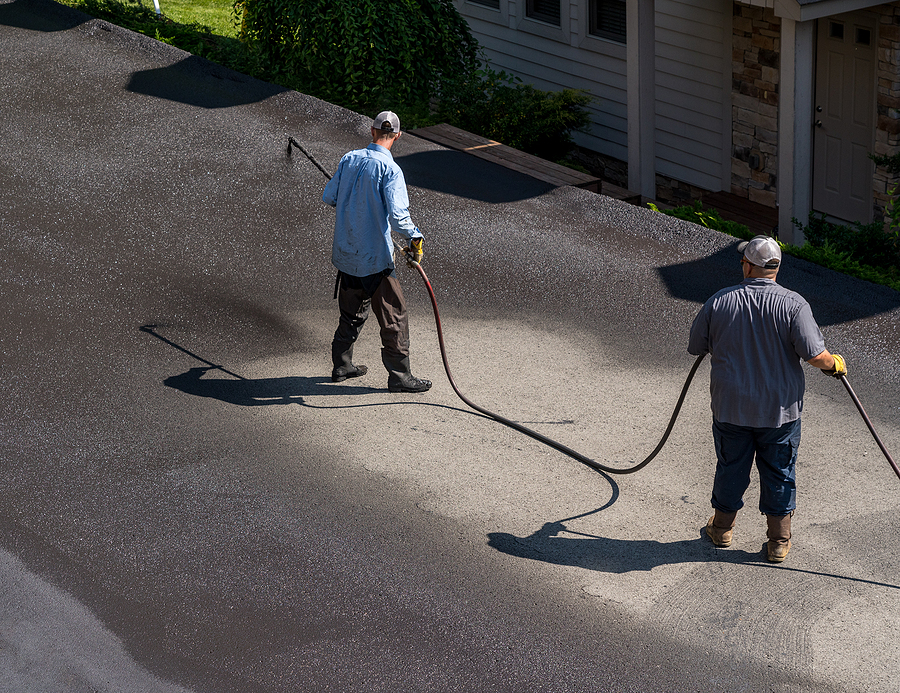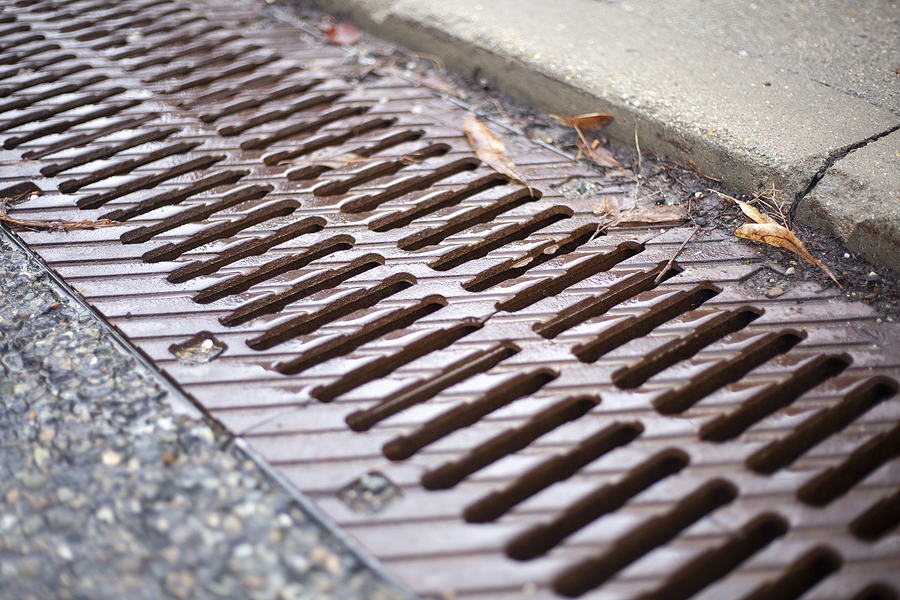A well-maintained parking lot is more than just a convenience; it’s an essential aspect of your property’s value and customer safety. Property managers and business owners know that a deteriorating parking lot can lead to accidents, lower property value, and a negative impression on customers.
This blog post will guide you through the various types of parking lot damage, signs that indicate the need for repairs, and detailed solutions to ensure your parking lot remains in top condition.

Common Types of Parking Lot Damage and Their Impact
Parking lots endure constant wear and tear from vehicles, weather conditions, and time. Understanding the common types of damage is the first step in maintaining a safe and attractive lot.
Potholes and Their Dangers
Potholes are not only unsightly but can also cause significant damage to vehicles and pose a tripping hazard to pedestrians. They form when water seeps into cracks and expands during freezes, ultimately breaking apart the pavement. Regular inspections can help identify potholes early before they become larger and more costly to repair.
Cracks and Surface Deterioration
Cracks in the asphalt or concrete can appear due to temperature fluctuations, heavy traffic, or poor installation. If left unattended, these cracks can widen and lead to more severe damage. Surface deterioration, such as alligator cracking, indicates underlying issues that require immediate attention to prevent further degradation.
Curb Damage
Curbs can suffer from chips, cracks, and even complete breakage due to vehicle impact or weather conditions. Damaged curbs not only detract from the appearance of your parking lot but can also affect drainage and increase the likelihood of accidents.
Signs Your Parking Lot Needs Repairs
Recognizing the early signs of parking lot damage can save you time and money in the long run. Here are some key indicators that repairs are needed.
Visible Cracks and Potholes
Regularly inspect your parking lot for visible cracks and potholes. Even small cracks can quickly expand, leading to larger problems. Addressing these issues early can prevent more extensive and expensive repairs.
Faded Pavement Markings
Pavement markings, such as parking lines and directional arrows, can fade over time due to weather exposure and traffic. Clear markings are essential for safety and efficient use of the parking lot. If you notice fading, it’s time to consider repainting.
Poor Drainage
Standing water in your parking lot after rain indicates poor drainage. This can lead to water damage, increased cracking, and pothole formation. Proper drainage is crucial to maintaining the integrity of your parking lot and preventing future issues.
Repair Options for Different Types of Damage
Depending on the type and extent of damage, various repair options are available. Understanding these options can help you choose the best solution for your parking lot.
Pothole Repair
For small potholes, cold patch solutions can provide a quick fix. However, for larger or recurring potholes, hot asphalt repair is more durable. This involves cleaning out the damaged area, applying a tack coat, and filling it with hot asphalt mix, followed by compaction.
Crack Sealing
Crack sealing is a cost-effective method to prevent water from penetrating the pavement and causing further damage. This process involves cleaning the cracks and filling them with a hot rubberized sealant, which flexes with the pavement and prevents moisture intrusion.
Curb and Gutter Repair
Damaged curbs and gutters can be repaired using concrete patching materials or replaced entirely if the damage is severe. Ensuring that curbs and gutters are in good condition helps with proper drainage and enhances the overall appearance of the parking lot.
Vegetation Control
Overgrown vegetation can cause cracks and damage to the pavement. Regular trimming and the use of herbicides can help control vegetation growth. Ensure that no roots are penetrating the pavement, as this can lead to further damage.
Pavement Marking Repainting
Faded pavement markings should be repainted to maintain clear guidance and safety for drivers and pedestrians. Use high-quality, reflective paint for better visibility, especially at night or during adverse weather conditions.
Drainage Solutions
Improving drainage involves cleaning existing drains, installing new drainage systems, or regrading the surface to ensure proper water flow. This prevents standing water and reduces the risk of water damage to the pavement.
Parking Lot Compliancy
Ensure your parking lot complies with local regulations and accessibility standards, such as the Americans with Disabilities Act (ADA). This includes proper signage, accessible parking spaces, and pathways. Regular audits can help identify and correct any non-compliant areas.
The Importance of Regular Parking Lot Maintenance
Regular maintenance is crucial to extending the lifespan of your parking lot and reducing long-term costs. Implementing a comprehensive parking lot maintenance plan can prevent minor issues from becoming major problems.
- Scheduled Inspections – Frequent inspections allow for early detection of damage. Schedule inspections every six months to identify and address issues promptly. Look for cracks, potholes, drainage problems, and faded markings.
- Preventative Measures – Sealcoating the pavement every few years provides a protective layer against water, oil, and UV damage. Regular cleaning removes debris that can cause damage, and applying herbicides controls vegetation growth.
- Budgeting for Maintenance – Allocate a budget specifically for parking lot maintenance. This ensures that funds are available for necessary repairs and preventive measures, ultimately saving money by avoiding costly emergency repairs.
Choosing the Right Commercial Paving Contractor
Selecting a reputable commercial paving contractor is essential for quality repairs and maintenance. Here are some tips to help you choose the right contractor:
- Research and Referrals – Start by researching local contractors and asking for referrals from other property managers or business owners. Check online reviews and ratings to gauge their reputation and quality of work.
- Verify Credentials – Ensure the contractor is licensed, insured, and bonded. Verify their experience with similar projects and ask for references. A reputable contractor will have no problem providing this information.
- Detailed Proposals – Request detailed proposals from multiple contractors. Compare their scope of work, materials used, and pricing. Choose a contractor who offers a comprehensive plan tailored to your specific needs.
Conclusion
Proactive parking lot care is vital for maintaining property value, ensuring customer safety, and enhancing the overall aesthetic appeal. Regular inspections, timely repairs, and a dedicated maintenance plan can prevent costly damage and extend the lifespan of your parking lot. By choosing the right commercial paving contractor and staying vigilant about maintenance, you can enjoy a well-maintained parking lot that reflects positively on your business.
For expert advice and top-notch parking lot maintenance services, let us help. Contact ACI Asphalt and Concrete at 317-549-1833 and give your business premises the care and attention they deserve! We offer asphalt and concrete work, including sealcoating services and pothole repair.
Related Posts:
The Impact of Potholes on Your Parking Lot: How to Address and Prevent Them
Why Quality Pavement is Essential for Your Parking Lot
Asphalt vs. Concrete: Which One is Better for Your Parking Lot?




